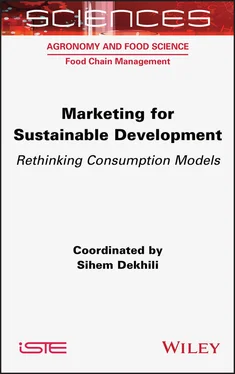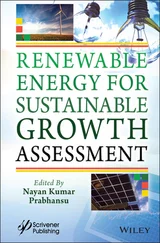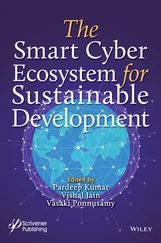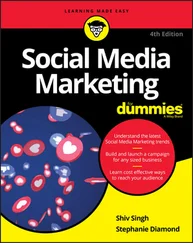1.2. Corporate adjustment strategies in response to the contestation of market logic
1.2.1. From an adaptive perspective of uprising recovery by the companies...
In a fast-moving anti-establishment environment that often generalizes (Dubuisson-Quellier 2009), companies have a tendency to respond to opposition movements through adaptive and short-term initiatives, such as the provision of products and services that are supposed to be “responsible” (biological, fair, green). These provisions are not necessarily backed up by a thorough review of procedures, means and methods (Koskenniemi 2019). However, companies would have to invest a lot in a transformative policy, having to change their habitual reactive attitude of creating incomplete offers and taking the risk of maintaining opposition, rather than appeasing it. In doing so, companies are only suggesting superficial adjustments based around a traditional sales logic, which hints more at greenwashing than true compliance with the values of social responsibility and sustainable development.
As a result, companies that subscribe to the traditional market-oriented system are considered responsible, by anti-consumption groups, for damaging the environment, encouraging over-consumption and spreading poor-quality food (Daniel et al. 2008). The one factor these activists have in common is the contestation of a market logic that encourages excessive consumption, without respect for individuals and groups developing practices supporting opposition and anti-consumption, or even deviance (Amine and Gicquel 2011). There appear to be several elements at play at the intersection of different types of socio-environmental contestation, at the micro level, companies and their enslaving mercantile practices, and at the macro level, the overall functioning of society, which is deliberately based on a consumerist logic emerging from the capitalist system.
In fact, even though the market has recovered from some of the criticism, and endogenized it through the development of products labeled “sustainable” or “ethical”, the fact of the matter is that significant numbers of citizens remain suspicious and continue their protest and defection from the market (voluntary reduction of consumption, prioritization of local distribution networks, boycotts, etc.). While some consumers approve of companies’ efforts to become greener, others continue to contest them or to be skeptical towards them, assuming their intentions to be much less respectable. The latter consider the “socially responsible” branding of products to be a commodification of ethics and an opportunism that only encourages their resistance to such companies. As a result, the socially responsible position demonstrated by companies in the traditional market and seen in the development provisions that are labeled socially responsible have struggled to reach the expected objectives, in particular, because they use the same sales techniques and persuasive registers that have been challenged (Koskenniemi 2019). On the other hand, the failure of these companies to take the socially responsible expectations and principles that consumers associate with sustainable development on board creates a supply of products and services that are considered to be insincere, as they do not seem to align with the values defended by these individuals. Indeed, the various contestation movements, characterized by strong socially responsible concerns, are the manifestation of a persistent criticism of the solely market-oriented offers of companies and of market ideology, despite the attempts made to endogenize them.
With this in mind, traditional marketing, which has, to date, adopted reactive and adaptive strategies towards consumer efforts, should now make a change to become part of a proactive strategy to transform its values, provisions and processes, in order to meet the expectations of socially responsible consumer-citizens.
1.2.2. ...to a transformative market logic under pressure from protest movements
Further to the socio-environmental criticisms, the market is no longer considered, from a consumer perspective, to be a place where beneficial exchanges can occur. It is instead perceived as a space of influence in which unbalanced exchanges take place, with poorly equipped and influenced consumers who make sub-optimal choices (Dobscha 1998).
The representation of the market from critical sociology (Baudrillard 1970) highlights behavior in opposition to the market, which is considered as combative in view of the market’s hegemonic and oppressive role. Moreover, the postmodern paradigm (Firat and Venkatesh 1995) emphasizes the “fragmentation of society” that makes it possible for consumers to free themselves through various alternatives to consumption that constitute as many degrees of freedom. From this point of view, this opposition concerns an “expression of self” more than a “fight”. This being the case, the opposition movements sometimes express themselves in relation to the deterioration of the environment, considering the capitalist system that governs the market to be a “structure of destruction” (François-Lecompte and Valette-Florence 2006), and sometimes in relation to the techniques of the market-oriented system, viewing the market as a “structure of domination” (Murray and Ozanne 2009). At the same time, the emphasis is on the “conscientization” of the consumer in regard to the tools and methods of the market-oriented system. Roux (2007) refers to this “awareness” as a precondition for learning about market relationships and then acquiring skills that make it possible to have, in fine , a clear idea of the context of trade and the unbalanced relationships of the powers involved.
In order to address the object of criticism of marketing and the market system and/or to articulate the resistance reactions of consumers to this criticism, it is therefore necessary to consider the nature of the market’s measures and their socio-environmental impact. As a result, to regenerate, marketing would need to have a genuine paradigmatic break, with the aim of inventing an innovative and deliberately different marketing model (Badot and Cova 2008). The latter should, in particular, identify the expectations and interests of citizen-consumers in advance by measuring, at the ethical level, the impact of their choices and actions on the different stakeholders and, more broadly, on society as a whole. For a company, this proactive attitude should consist of engaging in a thorough process of transformation of methods and practices that integrates more coproduction with the consumer, and researching the meaning of goods offered and ecological and societal concerns.
The communities we have investigated have, in this regard, shown criticisms and denunciations of the market system, as well as guidelines for an alternative marketing model. This position is in line with the values of these opposition communities, whose protest is focused on social and environmental concerns (Benhallam 2016). Indeed, in using the analysis of the data collected within these communities (see Box 1.1), several possibilities for change, or even for transformation, present themselves to the field of marketing.
Box 1.1. Netnographic study of three online communities involved in responsible consumption
In order to respond to our question, and to be able to understand how the communities in opposition to market ideology express themselves and which possibilities they can open up in terms of marketing practices, we have chosen a qualitative netnographic approach. We are interested in three distinct virtual communities who share their denunciation and rejection of market-oriented ideology (and its corollaries, the capitalist system and excessive consumption), while showing their stance in favor of sustainable and managed consumption.
Читать дальше












